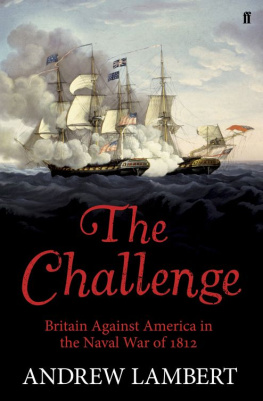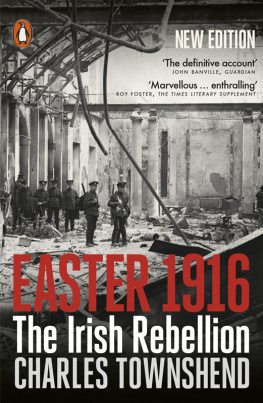Bollocks to Alton Towers
Uncommonly British Days Out
ROBIN HALSTEAD
JASON HAZELEY
ALEX MORRIS
JOEL MORRIS

PENGUIN BOOKS
PENGUIN BOOKS
Published by the Penguin Group
Penguin Books Ltd, 80 Strand, London WC2R 0RL, England
Penguin Group (USA) Inc., 375 Hudson Street, New York, New York 10014, USA
Penguin Group (Canada), 90 Eglinton Avenue East, Suite 700, Toronto, Ontario, Canada M4P 2Y3
(a division of Pearson Penguin Canada Inc.)
Penguin Ireland, 25 St Stephens Green, Dublin 2, Ireland (a division of Penguin Books Ltd)
Penguin Group (Australia), 250 Camberwell Road, Camberwell, Victoria 3124, Australia
(a division of Pearson Australia Group Pty Ltd)
Penguin Books India Pvt Ltd, 11 Community Centre,
Panchsheel Park, New Delhi 110 017, India
Penguin Group (NZ), cnr Airborne and Rosedale Roads, Albany,
Auckland 1310, New Zealand (a division of Pearson New Zealand Ltd)
Penguin Books (South Africa) (Pty) Ltd, 24 Sturdee Avenue,
Rosebank, Johannesburg 2196, South Africa
Penguin Books Ltd, Registered Offices: 80 Strand, London WC2R 0RL, England
www.penguin.com
First published by Michael Joseph 2005
Published in Penguin Books 2006
1
Copyright Robin Halstead, Jason Hazeley, Alex Morris and Joel Morris, 2005
All rights reserved
The moral right of the authors has been asserted
All photographs are the property of the authors, except Exhibition Road (page 13 of Inset),
and Dennis Severs House (page 18 of Inset)
Except in the United States of America, this book is sold subject
to the condition that it shall not, by way of trade or otherwise, be lent,
re-sold, hired out, or otherwise circulated without the publishers
prior consent in any form of binding or cover other than that in
which it is published and without a similar condition including this
condition being imposed on the subsequent purchaser
ISBN: 978-0-14-190599-0
www.bollockstoaltontowers.co.uk
www.framleyexaminer.com
For our parents
Contents
Introduction
If it is true that the British are a nation of animal lovers, then our favourite animal is probably the underdog.
A Briton watching a sporting event in which he or she has no deep-seated preference for either team will naturally support the losing side until they pull in front, then swap allegiance. We watch the Eurovision Song Contest just to cheer on whichever nation is collecting the most Nul Points. We rightly applaud as one of our countrymen raises an Academy Award for the cameras of the press, then wait a couple of days and start carping about how the little upstart has got too big for his boots. Its because, deep down, we admire pluck far more than victory.
This book is a collection of the underdogs of British tourism. That doesnt mean theyre not any good, quite the opposite in fact, but these are places that shun expensive showmanship and voguish technology in favour of something smaller, rarer and ultimately more satisfying. They require a little more effort and imagination (on occasion theres nothing to see at all) but they say more about Britain and the British than any number of corkscrew thrill rides or high-tech Interactive Visitor Experiences. The places were recommending are small pleasures, but we, as a nation, do small better than almost anyone else.
The idea for this book, as is only right and proper, came while drunk. We were with friends, sharing some small-scale travellers tales about a driving tour of regional museums we had made to research our last book (a parody of local history guides that sold nearly as many copies worldwide as a real local history guide). Soon the table was excitedly swapping stories of favourite unsung tourist backwaters. Everybody was passionate about at least one some seemingly unprepossessing place full of unexpected delights, kept alive by the dedication of its staff, and founded on a belief that there might be just enough people interested in the development of butter churns in Dawlish Warren to keep the turnstiles clicking.
Over the next few months, we assembled a list of recommendations from anywhere and anyone we could. Slowly, a lovely image of a parallel Britain emerged: a Britain unconquered by branded megadrome franchises and pale imitations of successful international leisure formats. A stubbornly old-fashioned go-your-own-way Britain, where a day out could still involve a sensible family car, a tartan blanket, a Thermos of tea and three types of sandwich, two with chunky brown pickle. A Britain where filling your days off required a little bit of mapreading (furrowed brow, hard-sucked pipe) to discover a forgotten little corner unmarked by a queue of other visitors in hot cars.
We live in an increasingly patronising culture, where, to avoid alienating, frightening or confusing anyone who might otherwise spend some money, all the spiky edges have been smoothed off our fun.
Go to a theme park and get the same experience thats on offer in these parks from Frankfurt to Miami: a day out requiring nothing more specific from the visitor than an ability to feel queasy at speed. Go to a modern museum and be treated like a stroppy teenager, the whole institution seemingly terrified youll start sulking that its all Booooooring and stomp out because its not a fairground. To avoid the possibility of your attention wandering for a moment, modern tourist attractions shepherd us, corral us, and titillate us simplistically. They make decisions for us as to what to see, where to go, how to have fun, all in the name of keeping us safely entertained. Nobody trusts us to play nicely on our own.
We decided to visit some tourist attractions that bucked that trend. In the noble tradition of the British amateur who builds a rocket in his shed without blueprints, we did absolutely no focus-grouping or market research. We simply made a list of the ones that sounded good and got on with it, relying on nothing more well thought through than an inarticulate leap of the heart at the sound of the place.
As we trotted round the country over the next nine months,started to fall into some sort of shape. From what had initially been no more than a gut reaction that, yes, these were all Uncommonly British Days Out, a theme emerged. Eventually, we realised what all these places had in common: a characteristically British mistrust of ostentation, a love of the modest, the enthusiastic and the unusual. Sometimes they were defined as much by what they werent as what they were: Porteath Bee Centres tiny slice of nature in the shadow of the spectacular Eden Project; Blackgang Chines steadfast refusal to be Disneyland; Aveburys magnificent ravaged majesty next to the neutered freak show of Stonehenge.
Many of these attractions trust you to make your own fun, free from intrusive handholding and embarrassing, proscriptive interaction. In the main, they steer well clear of excessive documentation and embellishment, just letting the exhibits or the environment speak for themselves. These places dont tell you what to think, they just tell you to think.
We make no apology that our choice of where to go and what we enjoyed there reflects our own little obsessions. Looking at the finished text, this is obviously the product of four childhoods overshadowed by the Cold War and raised by television. We also appear to have a disproportionate affection for the barely-buttoned-down insanity of the Victorians. Not everyone will get the same satisfaction from these attractions as we did. Too right. This is the antithesis of one-size-fits-all entertainment.
Doubtless weve barely scratched the surface of whats out there these are hidden gems, so dozens of great examples will have slipped under our radar. We wanted to pass on our general enthusiasm, not devise a strict itinerary. All the attractions were tested afterwards for anecdotal value in strenuous real-pub conditions, and they make great yarns. There must be plenty more of these frontline tourist tales to gather, reflecting different tastes within the national palate, and we hope this book might inspire readers to explore further.







